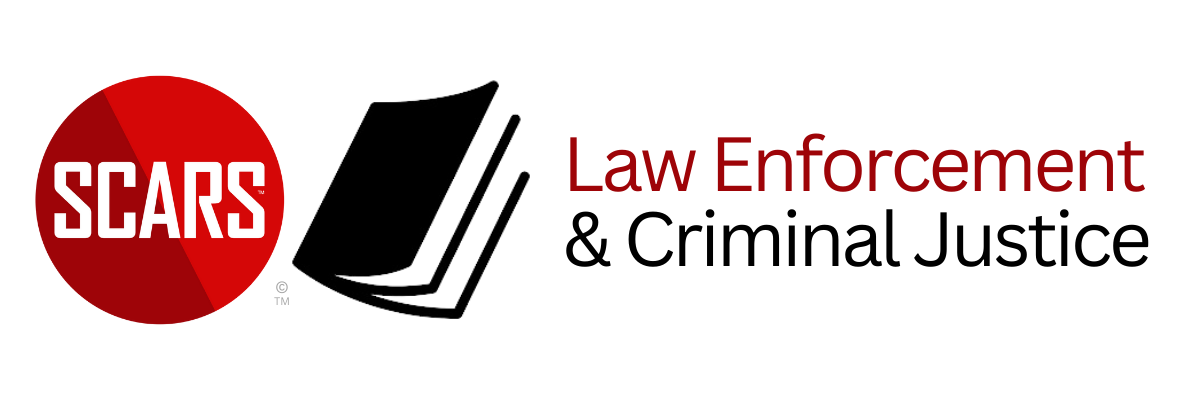
$100 Million Dollar Romance Scammers from Ghana Extradited to the United States
Ghanaian Nationals Extradited For Roles In Criminal Organization That Stole More Than $100 Million Through Romance Scams And Other Fraud
Primary Category: News // Law Enforcement
Author:
• SCARS Editorial Team – Society of Citizens Against Relationship Scams Inc.
About This Article
Four Ghanaian nationals have been charged in New York for their alleged roles in a criminal organization that stole more than $100 million through romance scams and business email compromise schemes targeting U.S. victims. Isaac Oduro Boateng, Inusah Ahmed, and Derrick Van Yeboah were extradited from Ghana and presented before a U.S. magistrate judge on August 7, 2025. Patrick Kwame Asare remains at large. Prosecutors allege the group posed as romantic partners to deceive vulnerable older Americans into sending money or laundering funds, while also executing fraudulent business email transactions to steal from companies. Proceeds were funneled to West Africa, primarily to senior figures known as “chairmen,” including Boateng and Ahmed. The defendants face multiple charges, each carrying significant prison terms if convicted. U.S. and Ghanaian authorities collaborated extensively on the investigation and extraditions. All defendants are presumed innocent unless proven guilty in court.
Note: This article is intended for informational purposes and does not replace professional medical advice. If you are experiencing distress, please consult a qualified mental health professional.

Ghanaian Nationals Extradited For Roles In Criminal Organization That Stole More Than $100 Million Through Romance Scams And Other Fraud
United States Attorney for the Southern District of New York, Jay Clayton, and Assistant Director in Charge of the New York Field Office of the Federal Bureau of Investigation (“FBI”), Christopher G. Raia, announced today the unsealing of an Indictment charging four Ghanaian nationals:
- ISAAC ODURO BOATENG, a/k/a “Kofi Boat,”
- INUSAH AHMED, a/k/a “Pascal,”
- DERRICK VAN YEBOAH, a/k/a “Van,” and
- PATRICK KWAME ASARE, a/k/a “Borgar,”
They operated the largest scammer group in Ghana. An international criminal organization that stole more than $100 million from victims via romance scams and business email compromises. They further announced Ghana’s extradition of BOATENG, AHMED, and VAN YEBOAH, who arrived in the U.S. on August 7, 2025, and will be presented today before U.S. Magistrate Judge Robert W. Lehrburger. ASARE remains at large. The case has been assigned to U.S. District Judge Arun Subramanian.
“As alleged, Isaac Oduro Boateng, Inusah Ahmed, Derrick van Yeboah, and Patrick Kwame Asare led and participated in an international fraud ring that engaged in a massive conspiracy to defraud vulnerable people and steal from businesses,” said U.S. Attorney Jay Clayton. “Offshore scammers should know that we, the FBI, and our law enforcement partners will work around the world to combat online fraud and bring perpetrators to justice.”
“The defendants have been brought to the United States to be held accountable for their alleged roles in scamming companies and vulnerable Americans out of over $100 million,” said FBI Assistant Director in Charge Christopher G. Raia. “Deceiving businesses using email compromise campaigns and tricking innocent elderly victims through fraudulent companionship in order to exploit their trust and finances is not merely appalling but illegal. The FBI will continue to ensure anyone who preys on companies and vulnerable Americans online is made to face the criminal justice system.”
As Alleged in the Indictment
BOATENG, AHMED, VAN YEBOAH, and ASARE were high-ranking members of a criminal organization based in Ghana that committed romance scams and business email compromises against individuals and businesses located across the U.S.
Many of the conspiracy’s victims were vulnerable older men and women who were tricked into believing that they were in online romantic relationships with people who were, in fact, fake identities assumed by members of the conspiracy. Once members of the conspiracy had gained the trust of their victims, they deceived those victims into sending their money to the enterprise or into helping them launder funds from other victims. The conspirators also committed business email compromises to trick and deceive businesses into wiring funds to the enterprise. In total, the conspiracy stole and laundered more than $100 million from dozens of victims.
After stealing the money, the fraud proceeds were then laundered to West Africa, where they were largely funneled to individuals called “chairmen,” who directed the activities of other members of the conspiracy. BOATENG and AHMED were considered chairmen of the organization.
The Criminals
BOATENG, 36; AHMED, 40; VAN YEBOAH, 40; and ASARE, 39, each of Ghana, are charged with one count of wire fraud conspiracy, which carries a maximum sentence of 20 years in prison; one count of wire fraud, which carries a maximum sentence of 20 years in prison; one count of money laundering conspiracy, which carries a maximum sentence of 20 years in prison; one count of conspiracy to receive stolen money, which carries a maximum sentence of five years in prison; and one count of receipt of stolen money, which carries a maximum sentence of 10 years in prison.
The maximum potential sentences in this case are prescribed by Congress and provided here for informational purposes only, as any sentencing of the defendants will be determined by a judge.
Mr. Clayton praised the outstanding work of the FBI. He also thanked Ghana and the U.S. Department of Justice’s Office of International Affairs for their assistance.
The Justice Department’s Office of International Affairs worked with the International Cooperation Unit of the Office of the Attorney-General of Ghana to secure the extraditions to the United States. Ghana’s Economic and Organized Crime Office, the Ghana Police Service – INTERPOL, Ghana’s Cyber Security Authority, and Ghana’s National Intelligence Bureau all provided significant assistance to ensure the success of these extraditions.
The case is being prosecuted by the Office’s Complex Frauds and Cybercrime Unit. Assistant U.S. Attorneys Kevin Mead and Mitzi Steiner are in charge of the prosecution.
The charges contained in the Indictment are merely accusations, and the defendants are presumed innocent unless and until proven guilty.
Article Glossary
- Assistant Director in Charge – Senior FBI official overseeing operations for a specific field office, in this case, the New York Field Office.
- Assistant U.S. Attorneys – Federal prosecutors representing the U.S. government in criminal cases; Kevin Mead and Mitzi Steiner are prosecuting this case.
- Business Email Compromise (BEC) – A type of fraud where criminals hack or spoof business email accounts to trick companies into sending funds to fraudulent accounts.
- Chairmen – High-ranking members of a criminal network who oversee operations and direct lower-level scammers.
- Christopher G. Raia – FBI Assistant Director in Charge of the New York Field Office, who commented on the case.
- Complex Frauds and Cybercrime Unit – A specialized division within the U.S. Attorney’s Office responsible for prosecuting large-scale fraud and cybercrime cases.
- Conspiracy – A criminal agreement between two or more people to commit fraud or other illegal activities, often involving coordinated planning.
- Cyber Security Authority (Ghana) – Ghana’s government agency responsible for cybersecurity policy, investigations, and enforcement.
- Defendants – Individuals formally charged in a criminal case; in this case, Boateng, Ahmed, Van Yeboah, and Asare.
- Economic and Organized Crime Office (Ghana) – Ghanaian agency focused on investigating and combating organized financial crime.
- Extradition – The legal process of transferring accused criminals from one country to another to face charges; Ghana extradited three of the defendants to the U.S.
- Federal Bureau of Investigation (FBI) – U.S. federal agency responsible for investigating major crimes, including international fraud.
- Fraud Proceeds – Money or assets obtained through illegal activities, often laundered to hide their origin.
- Ghana Police Service – INTERPOL – Ghana’s law enforcement branch working with INTERPOL on cross-border investigations and extraditions.
- Indictment – A formal criminal charge issued by a grand jury, used to prosecute serious federal crimes.
- International Cooperation Unit (Ghana) – Division within Ghana’s Office of the Attorney-General that works with foreign authorities on cases involving extraditions and cross-border crimes.
- Jay Clayton – U.S. Attorney for the Southern District of New York who announced the charges.
- Justice Department’s Office of International Affairs – U.S. agency that coordinates international extraditions and mutual legal assistance in cross-border cases.
- Laundered Funds – Illegally obtained money moved through different accounts or businesses to conceal its criminal origins.
- Magistrate Judge – A federal judge who handles initial court proceedings, such as arraignments and bail hearings; Robert W. Lehrburger is overseeing this stage.
- Money Laundering – The process of disguising the origin of illegally obtained money, often moving it through foreign accounts and networks.
- National Intelligence Bureau (Ghana) – Ghanaian agency providing intelligence support for national security and criminal investigations.
- Office of the Attorney-General of Ghana – Ghana’s top legal authority involved in approving and coordinating the extradition process.
- Online Romance Scam – A scam in which criminals create fake online personas to manipulate victims into sending money under the guise of a romantic relationship.
- Perpetrators – Individuals who commit crimes, in this case, those leading or participating in the fraud conspiracy.
- Presumption of Innocence – Legal principle that defendants are considered innocent until proven guilty in court.
- Prosecution – The process of presenting a criminal case in court against defendants; in this case handled by the U.S. Attorney’s Office.
- Robert W. Lehrburger – U.S. Magistrate Judge presiding over the initial proceedings.
- Romance Scams – Fraud schemes involving emotional manipulation to trick victims into sending money, often exploiting loneliness and trust.
- Sentencing – The punishment assigned to a convicted defendant, determined by the judge based on federal guidelines.
- Southern District of New York (SDNY) – Federal jurisdiction where the case is being prosecuted.
- Stolen Money Conspiracy – Criminal coordination to receive, conceal, or distribute stolen funds.
- S. District Judge Arun Subramanian – Judge assigned to oversee the full trial proceedings.
- S. Magistrate Judge – Federal judicial officer handling preliminary matters before trial, such as bail and procedural issues.
- United States Attorney’s Office – Federal prosecutors handling criminal cases on behalf of the U.S. government.
- Vulnerable Victims – Individuals, often elderly, targeted by scammers due to loneliness, trust, or financial insecurity.
- Wire Fraud – A federal crime involving schemes to defraud people or businesses using electronic communications, such as email or online platforms.
- Wire Fraud Conspiracy – An agreement between multiple parties to commit wire fraud, often involving coordinated planning and deception.
-/ 30 /-
What do you think about this?
Please share your thoughts in a comment below!
Important Information for New Scam Victims
- Please visit www.ScamVictimsSupport.org – a SCARS Website for New Scam Victims & Sextortion Victims.
- SCARS Institute now offers its free, safe, and private Scam Survivor’s Support Community at www.SCARScommunity.org – this is not on a social media platform, it is our own safe & secure platform created by the SCARS Institute especially for scam victims & survivors.
- SCARS Institute now offers a free recovery learning program at www.SCARSeducation.org.
- Please visit www.ScamPsychology.org – to more fully understand the psychological concepts involved in scams and scam victim recovery.
If you are looking for local trauma counselors, please visit counseling.AgainstScams.org
If you need to speak with someone now, you can dial 988 or find phone numbers for crisis hotlines all around the world here: www.opencounseling.com/suicide-hotlines
Statement About Victim Blaming
Some of our articles discuss various aspects of victims. This is both about better understanding victims (the science of victimology) and their behaviors and psychology. This helps us to educate victims/survivors about why these crimes happened and not to blame themselves, better develop recovery programs, and help victims avoid scams in the future. At times, this may sound like blaming the victim, but it does not blame scam victims; we are simply explaining the hows and whys of the experience victims have.
These articles, about the Psychology of Scams or Victim Psychology – meaning that all humans have psychological or cognitive characteristics in common that can either be exploited or work against us – help us all to understand the unique challenges victims face before, during, and after scams, fraud, or cybercrimes. These sometimes talk about some of the vulnerabilities the scammers exploit. Victims rarely have control of them or are even aware of them, until something like a scam happens, and then they can learn how their mind works and how to overcome these mechanisms.
Articles like these help victims and others understand these processes and how to help prevent them from being exploited again or to help them recover more easily by understanding their post-scam behaviors. Learn more about the Psychology of Scams at www.ScamPsychology.org
SCARS INSTITUTE RESOURCES:
If You Have Been Victimized By A Scam Or Cybercrime
♦ If you are a victim of scams, go to www.ScamVictimsSupport.org for real knowledge and help
♦ SCARS Institute now offers its free, safe, and private Scam Survivor’s Support Community at www.SCARScommunity.org/register – this is not on a social media platform, it is our own safe & secure platform created by the SCARS Institute especially for scam victims & survivors.
♦ Enroll in SCARS Scam Survivor’s School now at www.SCARSeducation.org
♦ To report criminals, visit https://reporting.AgainstScams.org – we will NEVER give your data to money recovery companies like some do!
♦ Follow us and find our podcasts, webinars, and helpful videos on YouTube: https://www.youtube.com/@RomancescamsNowcom
♦ Learn about the Psychology of Scams at www.ScamPsychology.org
♦ Dig deeper into the reality of scams, fraud, and cybercrime at www.ScamsNOW.com and www.RomanceScamsNOW.com
♦ Scam Survivor’s Stories: www.ScamSurvivorStories.org
♦ For Scam Victim Advocates visit www.ScamVictimsAdvocates.org
♦ See more scammer photos on www.ScammerPhotos.com
You can also find the SCARS Institute’s knowledge and information on Facebook, Instagram, X, LinkedIn, and TruthSocial
Psychology Disclaimer:
All articles about psychology and the human brain on this website are for information & education only
The information provided in this and other SCARS articles are intended for educational and self-help purposes only and should not be construed as a substitute for professional therapy or counseling.
Note about Mindfulness: Mindfulness practices have the potential to create psychological distress for some individuals. Please consult a mental health professional or experienced meditation instructor for guidance should you encounter difficulties.
While any self-help techniques outlined herein may be beneficial for scam victims seeking to recover from their experience and move towards recovery, it is important to consult with a qualified mental health professional before initiating any course of action. Each individual’s experience and needs are unique, and what works for one person may not be suitable for another.
Additionally, any approach may not be appropriate for individuals with certain pre-existing mental health conditions or trauma histories. It is advisable to seek guidance from a licensed therapist or counselor who can provide personalized support, guidance, and treatment tailored to your specific needs.
If you are experiencing significant distress or emotional difficulties related to a scam or other traumatic event, please consult your doctor or mental health provider for appropriate care and support.
Also read our SCARS Institute Statement about Professional Care for Scam Victims – click here
If you are in crisis, feeling desperate, or in despair, please call 988 or your local crisis hotline – international numbers here.
More ScamsNOW.com Articles
A Question of Trust
At the SCARS Institute, we invite you to do your own research on the topics we speak about and publish. Our team investigates the subject being discussed, especially when it comes to understanding the scam victims-survivors’ experience. You can do Google searches, but in many cases, you will have to wade through scientific papers and studies. However, remember that biases and perspectives matter and influence the outcome. Regardless, we encourage you to explore these topics as thoroughly as you can for your own awareness.















![NavyLogo@4x-81[1] $100 Million Dollar Romance Scammers from Ghana Extradited to the United States - 2025](https://scamsnow.com/wp-content/uploads/2025/04/NavyLogo@4x-811.png)










![scars-institute[1] $100 Million Dollar Romance Scammers from Ghana Extradited to the United States - 2025](https://scamsnow.com/wp-content/uploads/2025/04/scars-institute1.png)

![niprc1.png1_-150×1501-1[1] $100 Million Dollar Romance Scammers from Ghana Extradited to the United States - 2025](https://scamsnow.com/wp-content/uploads/2025/04/niprc1.png1_-150x1501-11.webp)